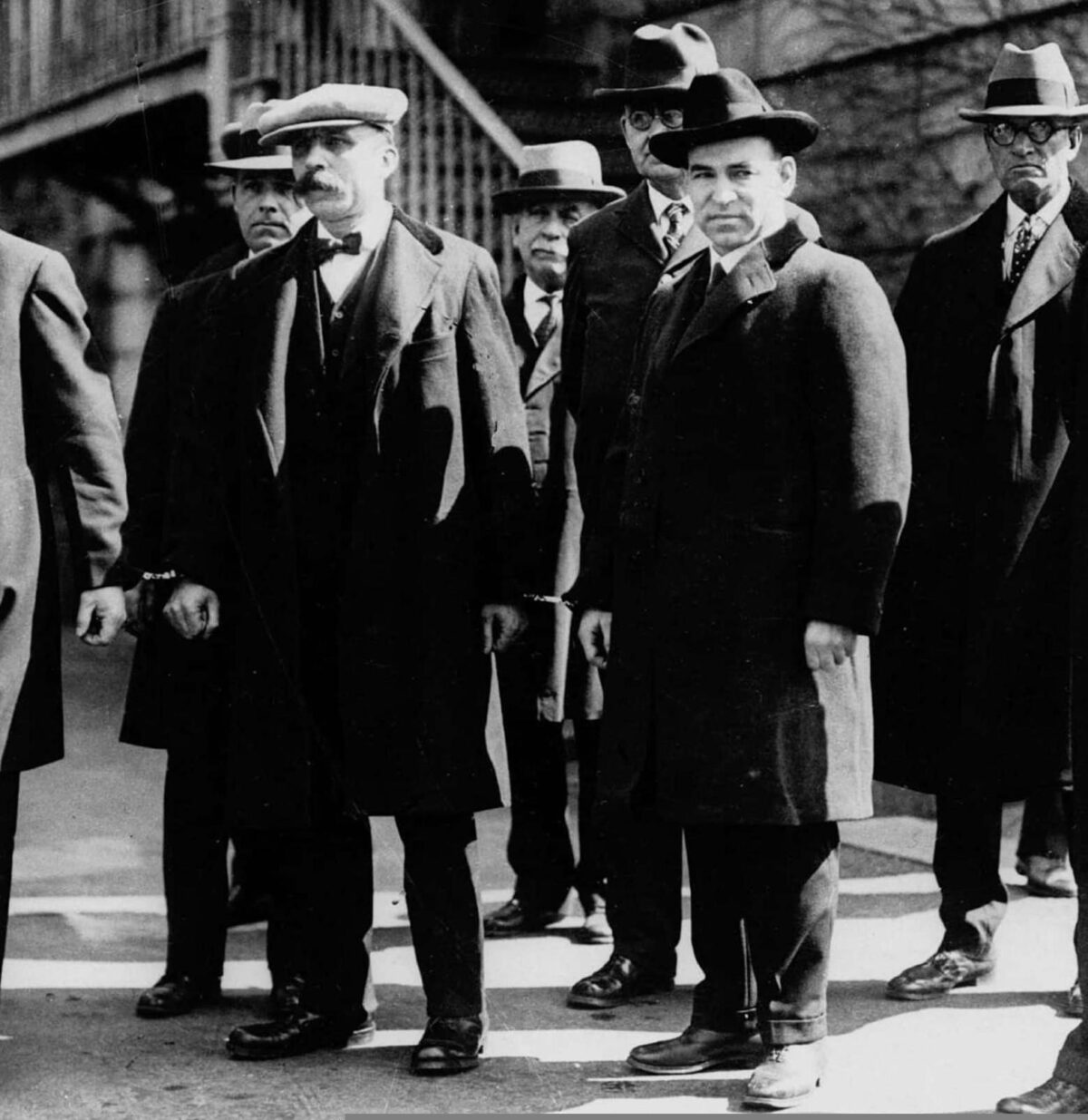Excerpts from Bartolomeo Vanzetti’s letter to Alice Stone Blackwell, April 14, 1923, Charlestown Prison, Massachusetts
Dear Comrade Blackwell:
[…]
The Royal Guards were established in the year of 1920, by Premier Nitti, for the sole purpose to repress the workers revolutionary movement. It was dissolved a few months ago by Mussolini, for the sole purpose to [give] his fascisti thugs (70,000 of them) a way to live without working.
Thus the sicarious [murderous] royal guards (almost all veterans) are now in the streets, for, in Italy the unemployment is in steady increase. This is the gratitude that the saved rulers have for these who become murderers of their brothers to save their king.
[…]
The “Vespro Anarchico” of Palermo was suppressed; an order of the perfetto [prefect] forbids the printers of the Island to print the foglio [paper]. Our comrades are daily killed; many take the road of the exile; many are chained; others are at the forests; all are menaced with the want of bread.
[…]
Here our venerando [venerable] comrade [Errico Malatesta] says that the political and economic changes caused by the Fascismo is of little importance, and greatly pedagogic [educational] to the workers. After he kept on.
The really and great damage that the Fascism has done, or has revealed, is the moral lowness in which we have fallen after the war and the revolutionary over-excitation of the last few years.
It is incredible the insult made to liberty, to the life, to the dignity of the human beings, by other human beings. And it is humiliating, for he who feels the common humanity that ties together all the men, good and bad, to think that all the committed infamies have not produced in the crowd an adequate sense of rebellion, of horrors, of disgust. It is humiliating to human beings, the possibility of such ferocity, of such cowardness.
It is humiliating that men, who have reached power only because, deprived of any moral or intellectual scrupols, they have known how to pluck the good moment to blackmail the ‘‘borgesia” may find the approbation, no matter if by a momentary aberration, of a number of persons sufficient to impose upon all countries their tyranny.
Therefore, the rescue expected and invocated by us must be before all a moral rescue; the re-valuation of the human liberty and dignity. It must be the condamnation of the Fascismo not only as a political and economic fact, but also and over all, as a criminal phenomenon, as the exploitation of a purulent growth which had been going, forming and ripening itself in the sick body of the social organism.
There are some, also among the so-called subversives, who are saying that the fascisti have taught to us how we must do, and they, these subversives are intentioned to imitate and to exacerbate the fascisti methods.
This is the great danger, the danger of the to-morrow; the danger, I mean, that, after the Fascismo, declined from internal dissolution or by external attack, may have to follow a period of insensate violences, of sterile vendettes, which would exhaust in little episodes of blood that energy which should be employed for a radical transformation of the social arrangements such to render impossible the repetition of the present horrors.
The fascisti’s methods may be good for who inspires to become a tyrant. They are certainly bad for he who will make “opera” of a liberator, for he who will collaborate to rise all humanity to a dignity of free and conscient men.
We remain as we always were, the partisans of the liberty, of all the liberty.
I hope you will agree with my bad translation of Malatasta’s words. They are words of one of the most learned, serene, courageous and powerful mind, among the minds of the sons of women through the whole history, and of a magnanimous heart.
With affection,
Bartolomeo
Also
Mussolini in Power, by Errico Malatesta (1922)
Why Fascism Won, by Errico Malatesta (1923)
The Story of a Proletarian Life, by Bartolomeo Vanzetti (1924)
Communists and Fascists, by Errico Malatesta (1924)
Mussolini: The Great Actor, by Camillo Berneri (1934)
Our New Ally, by Marie Louise Berneri (1942)
The Rise of Fascism in Italy, by Marie Louise Berneri (1943)
Sacco and Vanzetti: The Anarchist Background, by Paul Avrich (1991)
The Antifa Comic Book, by Gord Hill (2018)
Sacco and Vanzetti Commemoration Society
What is Fascism? (What is Democratic Colonialism?)

